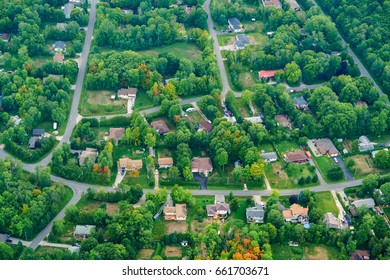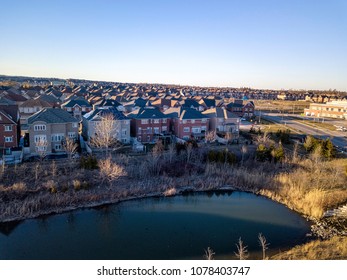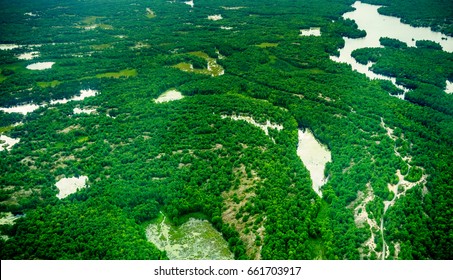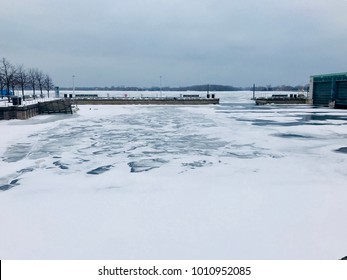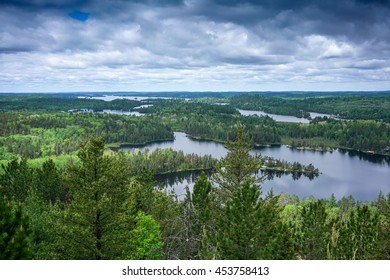Population Characteristics
According to the latest census, Neskantaga has a population of around 244 people. The indian reserve's population is in increased . Between 2016 and 2021, the population of Newfoundland and Labrador has increased by 2.95%.
| Population in 2016 | Population in 2021 | Difference |
|---|---|---|
| 237 | 244 | +2.95% |
Population By Genders
The male population of Neskantaga is around 125 while the female population is around 120.
Of the 244 total population in Neskantaga, the largest gender is male with around 125 women within the population.
| Male | Female | Difference |
|---|---|---|
| 125 | 120 | +4.00% |
Population by Age Characteristics
Neskantaga has a young population. The majority of the population is people aged 5 to 9 years old, accounting for 16.70% of the total population. The indian reserve median age is 26.60.
| Data | Male | Female | Difference | Total |
|---|---|---|---|---|
| 5 to 9 years | 15 12.00% | 20 16.70% | 25.00% | 40 16.70% |
| 25 to 29 years | 15 12.00% | 15 12.50% | 0.00% | 30 12.50% |
| Average age of the population | 29 29.40% | 28 28.20% | 3.40% | 29 28.90% |
| Median age of the population | 27 27.20% | 26 25.80% | 7.35% | 27 26.60% |
| 10 to 14 years | 10 8.00% | 10 8.30% | 0.00% | 25 10.40% |
| 0 to 4 years | 10 8.00% | 10 8.30% | 0.00% | 20 8.30% |
| 15 to 19 years | 15 12.00% | 5 4.20% | 66.67% | 20 8.30% |
| 30 to 34 years | 5 4.00% | 10 8.30% | 50.00% | 20 8.30% |
| 50 to 54 years | 10 8.00% | 10 8.30% | 0.00% | 15 6.30% |
| 20 to 24 years | 10 8.00% | 5 4.20% | 50.00% | 10 4.20% |
| 35 to 39 years | 10 8.00% | 5 4.20% | 50.00% | 10 4.20% |
| 40 to 44 years | 5 4.00% | 0 0.00% | 100.00% | 10 4.20% |
| 45 to 49 years | 0 0.00% | 5 4.20% | 100.00% | 10 4.20% |
| 55 to 59 years | 5 4.00% | 5 4.20% | 0.00% | 10 4.20% |
| 60 to 64 years | 0 0.00% | 5 4.20% | 100.00% | 5 2.10% |
| 65 to 69 years | 5 4.00% | 0 0.00% | 100.00% | 5 2.10% |
| 70 to 74 years | 0 0.00% | 5 4.20% | 100.00% | 5 2.10% |
| 75 to 79 years | 5 4.00% | 0 0.00% | 100.00% | 5 2.10% |
| 80 to 84 years | 0 0.00% | 0 0.00% | 0.00% | 0 0.00% |
Broader Age Groups
If the indian reserve's population is divided into broader age groups, most of the population falls into the 15 to 64 years age group. The group accounts for 60.40% of the population. The other age groups, 0 to 14 years and 15 to 64 years, account for 35.40% and 60.40%, respectively.
If we look at the population data from the broader age groups, we can see that most people in Neskantaga are within the 15 to 64 years age group.
| Data | Male | Female | Total |
|---|
Population of Neskantaga by Ethnicity and Origin
The population of Neskantaga is quite diverse, which contributes to the indian reserve's vibrant cultural landscape. Neskantaga is inclusive and accepts various ethnic groups with open arms. Furthermore, the province appreciates the unique contributions that each ethnicity brings.
The top 5 ethnicities and origins in the province are First Nations (North American Indian), which accounts for 56.25% of the total population, followed by Oji-Cree (27.08%), Ojibway (16.67%), Cree (6.25%), and North American Indigenous (4.17%).
Other ethnicities and origins in Newfoundland and Labrador include Afghan, Black, Serbian, Newfoundlander, and Hong Konger.
| Ethnicity and Origin | Male | Female | Percentage in Population |
|---|---|---|---|
| First Nations (North American Indian) | 50.00% | 56.52% | 56.25% |
| Oji-Cree | 23.08% | 26.09% | 27.08% |
| Ojibway | 11.54% | 17.39% | 16.67% |
| Cree | 7.69% | 0.00% | 6.25% |
| North American Indigenous | 0.00% | 0.00% | 4.17% |
| Afghan | 0.00% | 0.00% | 0.00% |
| Black | 0.00% | 0.00% | 0.00% |
| Serbian | 0.00% | 0.00% | 0.00% |
| Newfoundlander | 0.00% | 0.00% | 0.00% |
| Hong Konger | 0.00% | 0.00% | 0.00% |
Household and Dwelling Characteristics
About 70 of Neskantaga's population live in a single-detached house. In addition, most of them are living in 1 person household.
Household Size
About 13.35% of the population lives in 1 person households. 5 or more persons households ranked second, accounting for 13.35% of the population. 2 persons, 3 persons, and 4 persons households account for 10.00%, 6.65%, and 6.65%, respectively.
| Number of Person(s) in Household | Total | Percentage |
|---|---|---|
| 1 person | 20 | 13.35% |
| 5 or more persons | 20 | 13.35% |
| 2 persons | 15 | 10.00% |
| 3 persons | 10 | 6.65% |
| 4 persons | 10 | 6.65% |
Income in Neskantaga
Analyzing income distribution in Neskantaga can help us better understand its socioeconomic dynamics.
Per Capita Income
According to 2020 data, the median personal income within Neskantaga is $0.
A region's per capita data sheds light on the average income earned per person living in it. Since per capita income is calculated by dividing the region's total income by its population, it quantifies the population's economic situation on an individual basis.
Such data offers insights into the indian reserve's economic performance, spread of income across individuals, quality of life, as well as disparities within its borders.
Most of Neskantaga population or around 0 people falls in the Under $10,000 group. The next largest groups are the Under $10,000, and Under $10,000 with around 0 and 0 people, respectively.
Household Income
The Neskantaga's median household income is $0, according to 2020 data.
The data provides important insights into the indian reserve's economic landscape as well as the living standards of its population.
Analyzing such data enables researchers, policymakers, and businesses to gain a more comprehensive understanding of the indian reserve's income distribution, disparities, and trends.
Education Levels in Neskantaga
This data sheds light on the distribution of Neskantaga residents across educational milestones.
Such information is crucial in shaping the province’s policies on education, workforce development strategies, and initiatives that aim to improve access to quality education and promote lifelong learning opportunities.
57.95% or most of the Neskantaga population has a No certificate, diploma or degree. 25.55% of the population has a Postsecondary certificate, diploma or degree, 12.75% has a High (secondary) school diploma or equivalency certificate, and 4.35% has Bachelor's degree or higher.
| Degree | Men | Women | Total | Percentage |
|---|---|---|---|---|
| No certificate, diploma or degree | 90 | 75 | 160 | 57.95% |
| Postsecondary certificate, diploma or degree | 45 | 30 | 70 | 25.55% |
| High (secondary) school diploma or equivalency certificate | 20 | 25 | 35 | 12.75% |
| Bachelor's degree or higher | 0 | 10 | 10 | 4.35% |
Employment in Neskantaga
This dataset provides a snapshot of employment trends in Neskantaga. It encompasses a wide range of sectors, industries, as well as job categories.
The data shows that the unemployment rate in Newfoundland and Labrador is at 6.25% which is quite high.
| Status | Percentage |
|---|---|
| Employment rate | 50.00% |
| Unemployment rate | 6.25% |
Working as an Employee
The table shows the data on the total number of individuals in the indian reserve who work as an employee. The majority of Neskantaga's population (around 77.80%) are working permanent position as an employee.
Self-employed
In the indian reserve, there are 0 men and 0 women working as self-employed individuals, bringing the total number to 0.
| Status | Men | Women | Total |
|---|---|---|---|
| Self-employed | 0 | 0 | 0 |
Employment Industry Sectors
The Neskantaga industry employment sector census data offers insights into the region's economic landscape. The distribution of employment in Neskantaga is categorized and quantified, which reveals the region's economic composition.
Neskantaga has a wide range of industries. Most of its population (28%) works in the public administration sector. The Educational services sector comes second at 17%, followed by Health care and social assistance at 17%.
| Industry | Men | Women | Percentage |
|---|---|---|---|
| Public administration | 15 | 10 | 28% |
| Educational services | 0 | 10 | 17% |
| Health care and social assistance | 10 | 15 | 17% |
| Retail trade | 0 | 10 | 11% |
| Administrative and support, waste management and remediation services | 10 | 0 | 11% |
| Accommodation and food services | 0 | 0 | 11% |
| Agriculture, forestry, fishing and hunting | 0 | 0 | 0% |
| Mining, quarrying, and oil and gas extraction | 0 | 0 | 0% |
| Utilities | 0 | 0 | 0% |
| Construction | 0 | 0 | 0% |
| Manufacturing | 0 | 0 | 0% |
| Wholesale trade | 0 | 0 | 0% |
| Transportation and warehousing | 0 | 0 | 0% |
| Information and cultural industries | 0 | 0 | 0% |
| Finance and insurance | 0 | 0 | 0% |
| Real estate and rental and leasing | 0 | 0 | 0% |
| Professional, scientific and technical services | 0 | 0 | 0% |
| Management of companies and enterprises | 0 | 0 | 0% |
| Arts, entertainment and recreation | 0 | 0 | 0% |
| Other services (except public administration) | 0 | 0 | 0% |
Places of Work
The data offers insights into the commuting patterns as well as workplace distribution in the indian reserve. It provides a snapshot of workplaces, showing their geographic distribution and the flow of workers across different areas.
| Work Location | Men | Women | Total | Percentage |
|---|---|---|---|---|
| Usual place of work | 30 | 35 | 60 | 75.00% |
| No fixed workplace address | 15 | 0 | 20 | 25.00% |
| Worked at home | 0 | 0 | 0 | 0.00% |
| Worked outside Canada | 0 | 0 | 0 | 0.00% |
Commuting
The data sheds light on how Neskantaga residents travel to school or work. It highlights the frequency of different modes of transportation like walking, cycling, carpooling, and public transit.
The data is pivotal in the making of transportation policies as well as the development of transit systems. Ultimately commuting data contributes to improving the quality of life of Neskantaga residents and sustainable urban planning.
Commuting Duration
This data reveals the average time that the residents of Neskantaga spend traveling to their workplaces. It also sheds light on the efficiency of the indian reserve's public transit systems, and road networks, as well as the accessibility of the indian reserve.
| Duration | Percentage |
|---|---|
| Less than 15 minutes | 93.80% |
| 15 to 29 minutes | 12.50% |
| 30 to 44 minutes | 0.00% |
| 45 to 59 minutes | 0.00% |
| 60 minutes and over | 0.00% |
Marital Status
The statistics on marital status in Neskantagashed light on its societal dynamics. It captures the diverse types of marital statuses of the population.
Long-term commitments, such as common-law partnerships, civil unions, and marriages, reflect the indian reserve's social fabric. We can gain insights into Neskantaga's changing preferences and norms by examining the trends in marital status.
Language Spoken
The data below highlights indian reserve's linguistic diversity, showing elegances of solo language as well as bilingual harmonies. Other than language, it also shows the cultural landscape in Canada.
English is the most spoken official language in Neskantaga. About 240 people living in the province speak English, 5 people speak Neither English nor French, 0 people speak French language, and 0 people speak English and French language.
| Language | Population |
|---|---|
| English | 240 |
| Neither English nor French | 5 |
| French | 0 |
| English and French | 0 |
Religion
Neskantaga is predominantly Christian. About 125 of its population is Christian (60 males and 60 females).
The second largest religion in the province is Buddhist with 0.0% of the population adhering to the religion. There are also Hindu and Jewish, both represent 0.0% and 0.0% of the population, while Muslim represent 0.0% of the population.
| Religion | Population |
|---|---|
| Christian | 51.0% |
| Buddhist | 0.0% |
| Hindu | 0.0% |
| Jewish | 0.0% |
| Islam | 0.0% |
| Sikh | 0.0% |
















